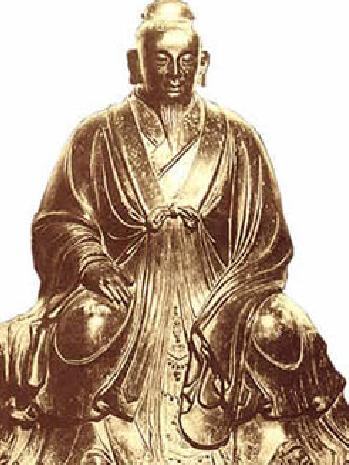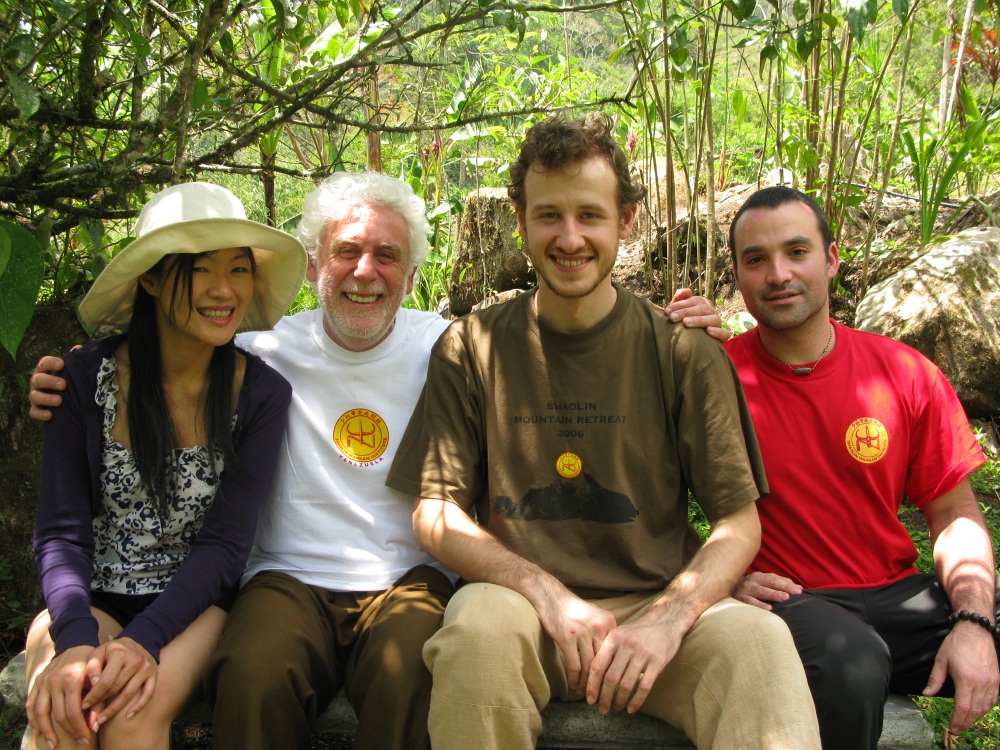TAIJIQUAN TREATISE AND SETTING GOOD INTENTIONS

The great Zhang San Feng
Question 8
I read your explanation of the Treatise at https://www.shaolin.org/video-clips-7/wudang-taijiquan/treatise/overview.html.
I am fascinated by the concepts of "achieving yin-yang harmony in all aspects" and also on the significance of "intention" in the practice and the art.
My question is this:
From the above explanation it appears to me that intention may be set at different levels of abstraction and in differing situations where the intent is either well known or totally new.
In the first, a focused mind and gentle intention may be on a specific pattern, or on performing a complete set, or an even greater scope such as reaching a specific level of development as a martial artist. In the second situation a gentle intention may be either on performing a pattern that is well practiced and known, or on a goal or undertaking that is completely new to the student.
Please could Sigung provide further advice and guidance for setting intention in the context of the Shaolin arts and also in our daily lives?
Matthew
Answer
Before giving advice and guidance for setting intention in context of the Shaolin arts and also in our daily life, it is helpful to elaborate on your question so that others may be clear on what the answer is.
Zhang San Feng’s Treatise is not just on Taijiquan, but also on spiritual cultivation and on daily life.
Yin-yang harmony is very important in Taijiquan. It is also very important in daily life. In Taijiquan, we are not only healthy but also combat efficient. In daily life, we are not only successful in our family life but also successful in the outside world.
Intention is very important in Taijiquan. Many Taiji practitioners know that, at least in theory though they are unable to put it into practice or even really understand its significance, Taijiquan techniques are not moved by muscles but by intention. In daily life, having good thoughts is very important.
Intention can be set at different levels. At a low level, we may intent to perform a Taijiquan movement correctly in a proper stance. At a higher level, we may want to develop internal force while performing the movement.
Intention can be set at different situations, like where the intent is well known or is totally new. It is well known that in Taijiquan a smaller-size person can defeat a bigger-sized opponent. We can set this intent at the coming Legacy of Zhang San Feng course to choose a bigger-sized opponent to defeat him. To many students it is new how learning the Zhang San Feng Wudang Set can improve our work. They can have this intent and watch out for lessons, practical or philosophical, at the course that they can transfer to their workplace.
Having a clear understanding of the question, we can now examine the gist of Zhang San Feng’s Treatise to see how it can benefit us, especially how we may set intention in the context of the Shaolin arts and also in our daily lives.
The great Zhang San Feng says that the Cosmos, called Taiji, originates from the Great Void, called Wuji. There is no differentiation in the Great Void. It is just an undifferentiated spread of energy.
There are two aspects of this one energy, symbolized as yin and yang. The interaction of yin and yang creates the Cosmos, including our phenomenal world which is differentiated into entities, like mountains and humans, and countless other things.
The Great Void and the Cosmos are actually the same. It is a matter of perspective. From the transcendental perspective, it is the Great Void. From the phenomenal perspective, the same Great Void is the Cosmos.
This universal principle that the Great Void is also the Cosmos, and that the Cosmos is also the Great Void, also applies to all human functions and processes. This, Zhang San Feng emphasizes, is the essence of his teaching.
Zhang San Feng continues that in the practice of Taijiquan, internally cultivate your spirit, and externally cultivate your energy. Before you make any physical movement in your form, you must have intention. Intention leads form. Also, you must empty your mind of all thoughts and not tense any muscles.
Zhang San Feng did not elaborate on how the universal principle applies to human functions and processes. The following examples are what I would interpret his teaching on daily life and on Taijiquan would be.
As the Cosmos is the same as the Great Void, if a person is sick, for example, it is because his energy is not flowing smoothly, just as on a bigger scale, if a calamity, like an earthquake or a tsunami, occurs, cosmic energy is not flowing smoothly. If we clear the blockage, we overcome the illness or calamity. Better still, if we ensure a smooth flow of energy we prevent them.
Intention plays a crucial role at both the personal scale and the cosmic scale, though many people may not realize it. Amazingly, the latest science confirms this ancient truth. Whether an electron will turn out to be a particle or energy depends solely on the intention of a scientist to measure it as a particle or as energy!
When a person suffers from a so-called incurable disease, whether he will recover by practicing chi kung learnt from us or resign himself to take medication for life depends on his intention.
A chi kung classic mentions that the intention of a people on earth can affect heaven. What is meant is that the intention of many people, outwardly expressed or inwardly conceptualized, can affect natural events like earthquakes and good harvests. Indeed, in a recent earthquake on Mount Kinabalu in Sabah, some people opine that some tourists showed great disrespect to the mountain spirits. Many other people may think this is superstitious. They probably do not know it is a scientific fact that the moon in the sky is not there if nobody conceptualizes it.
Always having good thoughts is a teaching that we in Shaolin Wahnam are familiar with. It is a teaching based on both ancient wisdom and the latest science. Our result will be greatly enhanced when our mind is clear of all other thoughts and we are totally relaxed, which is another great teaching from Zhang San Feng’s treatise. Otherwise, it would be intellectualizing, which we discourage.
Setting intention is very important in the context of our Shaolin arts, including Taijiquan of course, right from the preliminary stage of setting aims and objectives to the very advanced stage of expanding into the Cosmos.
When we set aims and objectives which will make our training purposeful as well as very cost-effective, we employ intention. When we expand into the Cosmos, we focus our energy at our dan tian, place our mind there, and expand. This is also employing intention.
In the various stages between these two extremes, we also employ intention. For example, we intend to generate an energy flow, clear blockage in self-manifested chi movement, develop internal force in various internal force exercises, being peaceful and happy while performing standing meditation, or letting our energy to flow at various levels in Bone Marrow Cleansing. It is important to have these intentions while in a chi kung state of mind, otherwise it would be intellectualization.
On the other hand, we must guard against over-training. We have become frighteningly cost-effect. It is a fact, though many people outside our school would not believe it, that our typical student can now attain in one month what even real masters outside our school would need one year.
An effective way to avoid over-training is not to go too deeply into a chi kung state of mind. We can still have good thoughts when we are not in a deep chi kung state of mind, or even when we are out of a chi kung state of mind.
Even more important to have intention in the context of our Shaolin arts is to have good intention for ourselves and others in our daily life. If you think that your family should be happier than what it should be, have a gentle thought about it. If you feel you should have better result in your work, or you should be your own boss, have a gentle thought about it.
An excellent time to have such good thoughts, or apply intention to enhance our daily life, is during or at the end of standing mediation of our practice.
By just setting intention the Cosmos or the Great Void, in its mysterious ways, will work on it. But you will help the Great Void, called God in some culture, to help yourself if you also put in the right effort besides the right intention. The Legacy of Zhang San Feng course at the coming UK Summer Camp will provide a lot of opportunities to develop such effort and intention.

Always having good thoughts is a very important teaching in our school
The questions and answers are reproduced from the thread Legacy of Zhang San Feng: 10 Questions to the Grandmaster in the Shaolin Wahnam Discussion Forum.
LINKS
Courses and Classes
